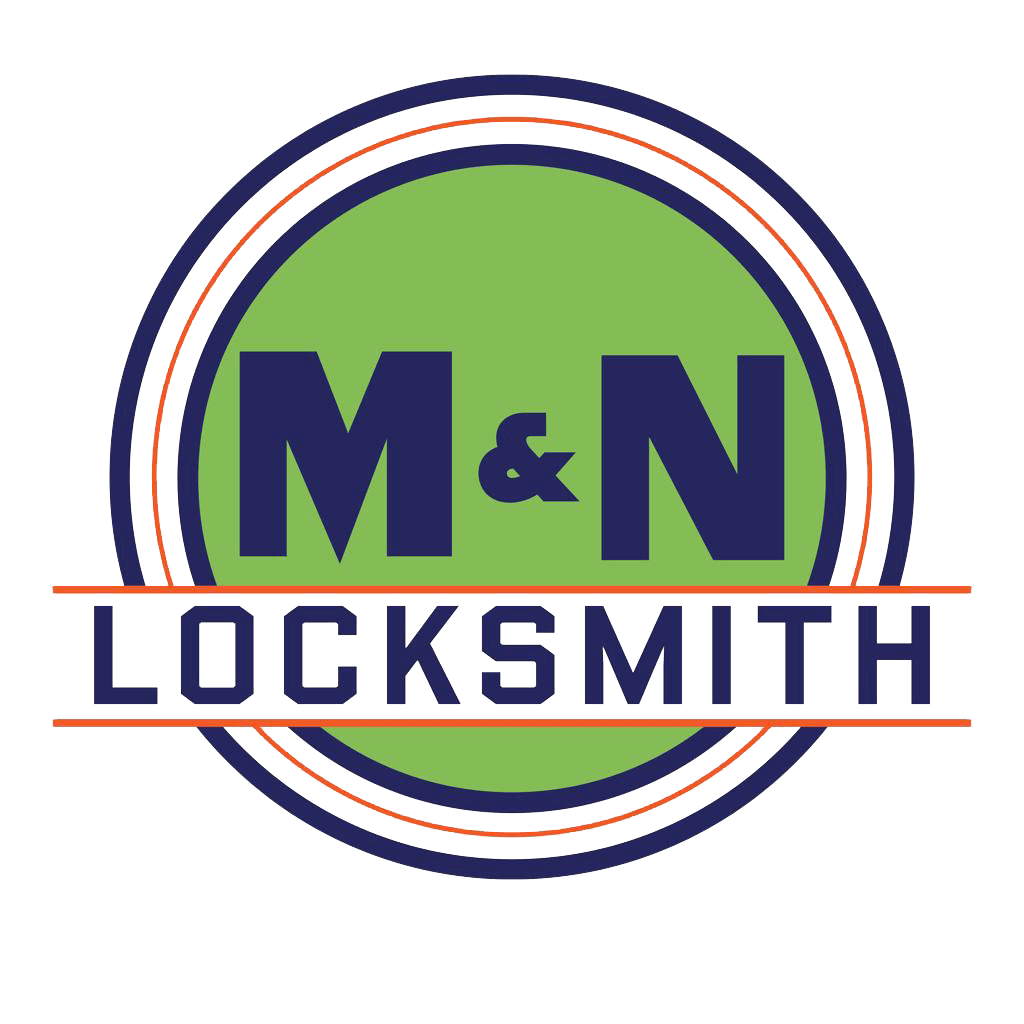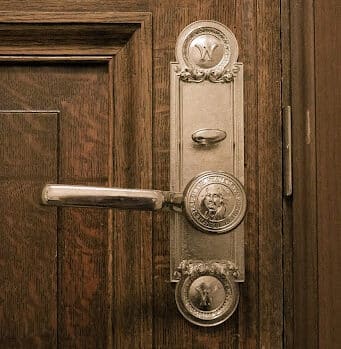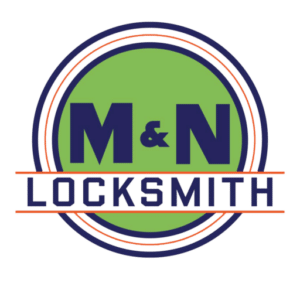As a homeowner, one of the most important aspects of ensuring the security of your property is investing in high-quality residential door locks. The first line of protection against robbers and intruders is a sturdy and dependable lock, giving you and your family peace of mind. In this comprehensive guide, we will walk you through everything you need to know about residential door locks, including the different types available, key features to consider, and maintenance tips to prolong their lifespan.
Different Types of Residential Door Locks
When it comes to residential door locks, there is a wide range of options available to suit different needs and preferences. Let’s examine some of the more prevalent kinds in more detail:
- Deadbolt Locks: Deadbolt locks are known for their exceptional security and are widely used in residential properties. They consist of a solid metal bolt that extends into the door frame and cannot be forced open easily. Deadbolt locks come in single-cylinder and double-cylinder variations, with the latter requiring a key to unlock from both sides.
- Knob Locks: Residential properties commonly feature knob locks, but they are not the most secure choice. The main lock should be the primary means of securing a door, with auxiliary locks serving as supplements. Knob locks are vulnerable to forced entry, as the lock cylinder is located in the knob itself rather than the door.
- Lever Handle Locks: In commercial settings, lever handle locks are frequently used, and they can be installed in residential properties as well. They are easier to operate than knob locks, making them a suitable choice for individuals with limited mobility. However, lever-handle locks may not provide the same level of security as deadbolt locks.
Features to Consider When Choosing a Residential Door Lock
While choosing a residential door lock, consider its functionality and security features, as they are essential for its overall performance and protection. Here are some key features to keep in mind:
- Grade: Look for locks that have been tested and certified by the American National Standards Institute (ANSI). Three grades exist for residential door locks: Grade 1, Grade 2, and Grade 3. The maximum level of safety and sturdiness is provided by grade 1 locks.
- Key Control: Opt for locks that offer key control features, such as restricted keyways or key duplication restrictions. This ensures that unauthorized individuals cannot easily duplicate your keys.
- Smart Lock Compatibility: With the rise of smart home technology, many residential door locks now offer compatibility with smart lock systems. You can remotely control these locks, enabling you to monitor and manage access to your home from anywhere.
Understanding the Security Levels
When it comes to residential door lock security, it is crucial to understand the different security levels associated with various lock types. This knowledge will help you make an informed decision when choosing the right lock for your home. Here are the three main security levels:
- Low Security: Knob locks and some lever handle locks fall under the low-security category. They are relatively easy to pick or force open, making them less effective in deterring burglars. Using these locks as additional security measures in conjunction with more robust lock types is the best practice.
- Medium Security: Deadbolt locks with a Grade 2 rating offer medium-level security. They provide a good balance between price and security, making them suitable for most residential properties. However, they may still be vulnerable to experienced burglars.
- High Security: Deadbolt locks with a Grade 1 rating are considered high-security locks. They are highly resistant to picking, drilling, and forced entry attempts. These locks are recommended for homeowners who prioritize maximum security.
Tips for Maintaining and Prolonging the Lifespan
To ensure the longevity and optimal performance of your residential door locks, regular maintenance is essential. Here are some useful tips for maintaining and prolonging the lifespan of your locks:
- Lubrication: Apply a small amount of graphite lubricant to the lock cylinder and moving parts at least once a year. This guarantees smooth functioning and reduces friction.
- Cleaning: Regularly clean your locks with a mild detergent and a soft cloth. Avoid using abrasive cleaners or harsh chemicals, as they can damage the lock’s finish.
- Tighten Loose Screws: Over time, screws on door locks may become loose due to repeated use. Check and tighten any loose screws to ensure the lock remains securely attached to the door.
By following these maintenance tips, you can extend the lifespan of your residential door locks and prevent potential issues that may compromise their security.
Common Issues with Residential Door Locks and How to Troubleshoot Them
Even with proper maintenance, residential door locks may encounter some common issues. Here are a few problems you may encounter and how to troubleshoot them:
- Key Sticking or Jamming: If your key gets stuck or jams in the lock, try lubricating the key with a graphite lubricant. Insert the key gently and jiggle it slightly to dislodge any debris or dirt that may be causing the issue.
- Misaligned Lock Cylinder: If your lock cylinder is misaligned and the key doesn’t turn smoothly, try adjusting the strike plate on the door frame. Use a screwdriver to loosen the screws and move the strike plate slightly until the lock operates smoothly.
- Deadbolt Not Extending or Retracting: If your deadbolt doesn’t extend or retract properly, check for any obstructions in the strike plate or on the bolt itself. Clean the bolt and strike plate, and ensure they are properly aligned for smooth operation.
Upgrading Residential Door Locks for Enhanced Security
If you feel that your current residential door locks do not provide adequate security, upgrading to more advanced lock systems can be a wise investment. Here are a few options to consider:
- Smart Locks: Smart locks offer enhanced convenience and security by allowing you to control and monitor access to your home remotely. Through a smartphone app, keypad, or biometric authentication, you can operate them.
- Keyless Entry Systems: Keyless entry systems eliminate the need for traditional keys by utilizing access codes or biometric data. You can easily change or deactivate access codes to provide convenience and enhanced security.
- Multi-Point Locking Systems: Multi-point locking systems provide additional security by utilizing multiple locking points along the door frame. This makes it much more difficult for intruders to force the door open.
When upgrading your residential door locks, it is advisable to consult with a professional locksmith to ensure proper installation and compatibility with your existing doors.
The Importance of Professional Installation and Maintenance
While some homeowners may attempt to install or repair their door locks themselves, it is highly recommended to seek professional assistance. Professional locksmiths have the necessary expertise and tools to ensure proper installation and maintenance, maximizing the effectiveness of your residential door locks.
Professional installation offers several benefits, including:
- Security: Professionals can ensure that the locks are installed correctly, leaving no vulnerabilities that could be exploited by intruders.
- Warranty: Many lock manufacturers require professional installation for their warranties to be valid. Contact an expert to ensure the upholding of your warranty.
- Peace of Mind: Knowing that your locks have been installed by a professional gives you peace of mind, knowing that your home is secure.
Residential Door Lock Brands to Consider
When choosing residential door locks, you should select reputable brands known for their quality and reliability. Here are some brands to think about:
- Schlage: Schlage is a well-known brand that offers a wide range of residential door locks, including deadbolts, knob locks, and smart locks. They are known for their durability and advanced security features.
- Kwikset: Kwikset is another popular brand that offers a variety of residential door locks, including smart locks with keyless entry options. Their locks are known for their innovative designs and ease of use.
- Yale: Yale is a trusted brand that specializes in high-security residential door locks. They offer a range of deadbolts and lever handle locks, known for their solid construction and exceptional durability.
Conclusion
Investing in the right residential door locks is crucial for maintaining the security and safety of your home. By understanding the different types, features, and security levels, you can make an informed decision that meets your specific needs. Remember to prioritize quality, durability, and professional installation for optimal security.
In conclusion, residential door locks play a vital role in safeguarding your home. By following the maintenance tips provided and considering the various upgrade options available, you can ensure that your property remains secure and protected.
Frequently Asked Questions
1. How often should I replace my residential door locks?
You should replace your residential door locks every 5 to 7 years, or sooner if you notice signs of wear and tear or compromised security.
2. Can I install residential door locks myself?
While it is possible to install residential door locks yourself, it is highly recommended to seek professional assistance to ensure proper installation and maximum security.
3. Are smart locks secure?
Smart locks can be secure if they are installed correctly and used in conjunction with other security measures. It is essential to choose a reputable brand and follow best practices for securing your smart lock system.
4. Can I rekey my residential door locks myself?
Rekeying residential door locks requires specialized tools and knowledge. It is best to hire a professional locksmith to ensure the rekeying process is done correctly.
5. Can I use the same key for all my residential door locks?
Yes, it is possible to have all your residential door locks keyed alike, allowing you to use the same key for all the locks in your home. This can provide convenience and ease of use.


